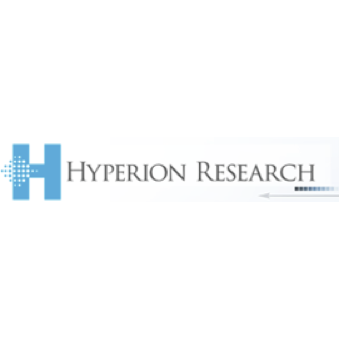 When HPC and national security appear in the same sentence, thoughts typically turn towards military, defense and homeland security. While that’s a natural association, national security means more than just physical and border safety. Security also encompasses public health and safety, and secure systems for commerce and finance, which are critical to the well-being – the strength – of a nation.
When HPC and national security appear in the same sentence, thoughts typically turn towards military, defense and homeland security. While that’s a natural association, national security means more than just physical and border safety. Security also encompasses public health and safety, and secure systems for commerce and finance, which are critical to the well-being – the strength – of a nation.
High performance computing plays just as important a role in supporting a nation’s security and competitiveness in these areas as it does in military defense.
This article is a summary of a white paper developed on behalf of Dell Technologies by HPC industry analyst firm Hyperion Research on the crucial role that HPC investments by the U.S. government play across a spectrum of national needs. At the heart of the paper’s thesis: While many U.S. governmental entities rely on HPC for their critical mission requirements, more could be done. Looked at in some ways, the U.S. is falling behind other countries and regions in their utilization of HPC.
Examples include: the severity and paths of recent severe North American weather events were more accurately predicted, and with more lead time, by European weather models. Several APAC nations are considered to be in leadership positions on environmental sustainability in smart cities and urban design. The U.S. is at risk of ceding competitive advantage and sub-optimizing national welfare interests unless the country increases investment in addressing these challenges.
HPC leadership not only provides security for a nation, but also for global security, health
and sustainability. Of the 17 goals defined in the United Nations’ 2030 Agenda for Sustainable
Development related to public health and safety, below are the 12 that can benefit from science and research enabled by advanced technical computing:
– Goal 2: End hunger, achieve food security and improved nutrition and promote sustainable agriculture.
– Goal 3: Ensure healthy lives and promote well-being for all at all ages.
– Goal 6: Ensure availability and sustainable management of water and sanitation for all.
– Goal 7: Ensure access to affordable, reliable, sustainable, and modern energy for all.
 – Goal 8: Promote sustained, inclusive, and sustainable economic growth, full and productive employment and decent work for all.
– Goal 8: Promote sustained, inclusive, and sustainable economic growth, full and productive employment and decent work for all.
– Goal 9: Build resilient infrastructure, promote inclusive and sustainable industrialization and foster innovation.
– Goal 11: Make cities and human settlements inclusive, safe, resilient and sustainable.
– Goal 12: Ensure sustainable consumption and production patterns.
– Goal 13: Take urgent action to combat climate change and its impacts.
– Goal 14: Conserve and sustainably use the oceans, seas and marine resources for sustainable development
– Goal 15: Protect, restore, and promote sustainable use of terrestrial ecosystems, sustainably manage forests, combat desertification, and halt and reverse land degradation and halt biodiversity loss.
– Goal 16: Promote peaceful and inclusive societies for sustainable development, provide access to justice for all and build effective, accountable, and inclusive institutions at all levels.
The U.S. has several avenues available to support the needs of scientists, researchers, and engineers tackling these critical issues. The federal government should consider vendor partners that offer a broad range of HPC solutions and services for both on-premises and cloud resources.
Download the whitepaper to read more about “To Out-compute is to Out-compete: In the Interests of National Security – Defense Technologies and Use Cases.”
Visit Dell.com/HPC for information on HPC solutions for government. Join the HPC Community at DellHPC.org.



